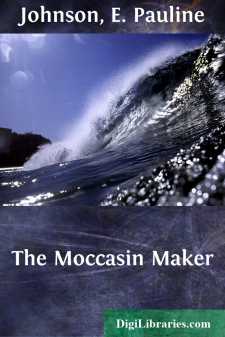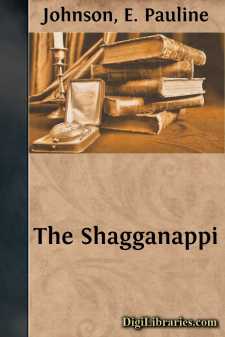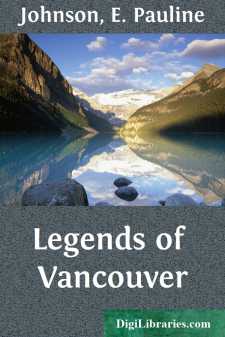Categories
- Antiques & Collectibles 13
- Architecture 36
- Art 48
- Bibles 22
- Biography & Autobiography 813
- Body, Mind & Spirit 142
- Business & Economics 28
- Children's Books 17
- Children's Fiction 14
- Computers 4
- Cooking 94
- Crafts & Hobbies 4
- Drama 346
- Education 46
- Family & Relationships 57
- Fiction 11829
- Games 19
- Gardening 17
- Health & Fitness 34
- History 1377
- House & Home 1
- Humor 147
- Juvenile Fiction 1873
- Juvenile Nonfiction 202
- Language Arts & Disciplines 88
- Law 16
- Literary Collections 686
- Literary Criticism 179
- Mathematics 13
- Medical 41
- Music 40
- Nature 179
- Non-Classifiable 1768
- Performing Arts 7
- Periodicals 1453
- Philosophy 64
- Photography 2
- Poetry 896
- Political Science 203
- Psychology 42
- Reference 154
- Religion 513
- Science 126
- Self-Help 84
- Social Science 81
- Sports & Recreation 34
- Study Aids 3
- Technology & Engineering 59
- Transportation 23
- Travel 463
- True Crime 29
Our website is made possible by displaying online advertisements to our visitors.
Please consider supporting us by disabling your ad blocker.
The Moccasin Maker
Description:
Excerpt
The inducement to be sympathetic in writing a preface to a book like this is naturally very great. The authoress was of Indian blood, and lived the life of the Indian on the Iroquois Reserve with her chieftain father and her white mother for many years; and though she had white blood in her veins was insistently and determinedly Indian to the end. She had the full pride of the aboriginal of pure blood, and she was possessed of a vital joy in the legends, history and language of the Indian race from which she came, crossed by good white stock. But though the inducement to be sympathetic in the case of so chivalrous a being who stood by the Indian blood rather than by the white blood in her is great, there is, happily, no necessity for generosity or magnanimity in the case of Pauline Johnson. She was not great, but her work in verse in sure and sincere; and it is alive with the true spirit of poetry. Her skill in mere technique is good, her handling of narrative is notable, and if there is no striking individuality—which might have been expected from her Indian origin—if she was often reminiscent in her manner, metre, form and expression, it only proves her a minor poet and not a Tennyson or a Browning. That she should have done what she did do, devotedly, with an astonishing charm and the delight of inspired labour, makes her life memorable, as it certainly made both life and work beautiful. The pain and suffering which attended the latter part of her life never found its way into her work save through increased sweetness and pensiveness. No shadow of death fell upon her pages. To the last the soul ruled the body to its will. Phenomenon Pauline Johnson was, though to call her a genius would be to place her among the immortals, and no one was more conscious of her limitations than herself. Therefore, it would do her memory poor service to give her a crown instead of a coronet.
Poet she was, lyric and singing and happy, bright-visioned, high-hearted, and with the Indian's passionate love of nature thrilling in all she did, even when from the hunting-grounds of poesy she brought back now and then a poor day's capture. She was never without charm in her writing; indeed, mere charm was too often her undoing. She could not be impersonal enough, and therefore could not be great; but she could get very near to human sympathies, to domestic natures, to those who care for pleasant, happy things, to the lovers of the wild.
This is what she has done in this book called "The Moccasin Maker." Here is a good deal that is biographical and autobiographical in its nature; here is the story of her mother's life told with rare graciousness and affection, in language which is never without eloquence; and even when the dialogue makes you feel that the real characters never talked as they do in this monograph, it is still unstilted and somehow really convincing. Touching to a degree is the first chapter, "My Mother," and it, with all the rest of the book, makes one feel that Canadian literature would have been poorer, that something would have been missed from this story of Indian life if this volume had not been written. It is no argument against the book that Pauline Johnson had not learnt the art of short-story writing; she was a poetess, not a writer of fiction; but the incidents described in many of these chapters show that, had she chosen to write fiction instead of verse, and had begun at an early stage in her career to do so, she would have succeeded. Her style is always picturesque, she has a good sense of the salient incident that makes a story, she could give to it the touch of drama, and she is always interesting, even when there is discursiveness, occasional weakness, and when the picture is not well pulled together. The book had to be written; she knew it, and she did it. The book will be read, not for patriotic reasons, not from admiration of work achieved by one of the Indian race; but because it is intrinsically human, interesting and often compelling in narrative and event.
May it be permitted to add one word of personal comment? I never saw Pauline Johnson in her own land, at her own hearthstone, but only in my house in London and at other houses in London, where she brought a breath of the wild; not because she dressed in Indian costume, but because its atmosphere was round her. The feeling of the wild looked out of her eyes, stirred in her gesture, moved in her footstep. I am glad to have known this rare creature who had the courage to be glad of her origin, without defiance, but with an unchanging, if unspoken, insistence. Her native land and the Empire should be glad of her for what she was and for what she stood; her native land and the Empire should be glad of her for the work, interesting, vivid and human, which she has done. It will preserve her memory. In an age growing sordid such fresh spirits as she should be welcomed for what they are, for what they do....





